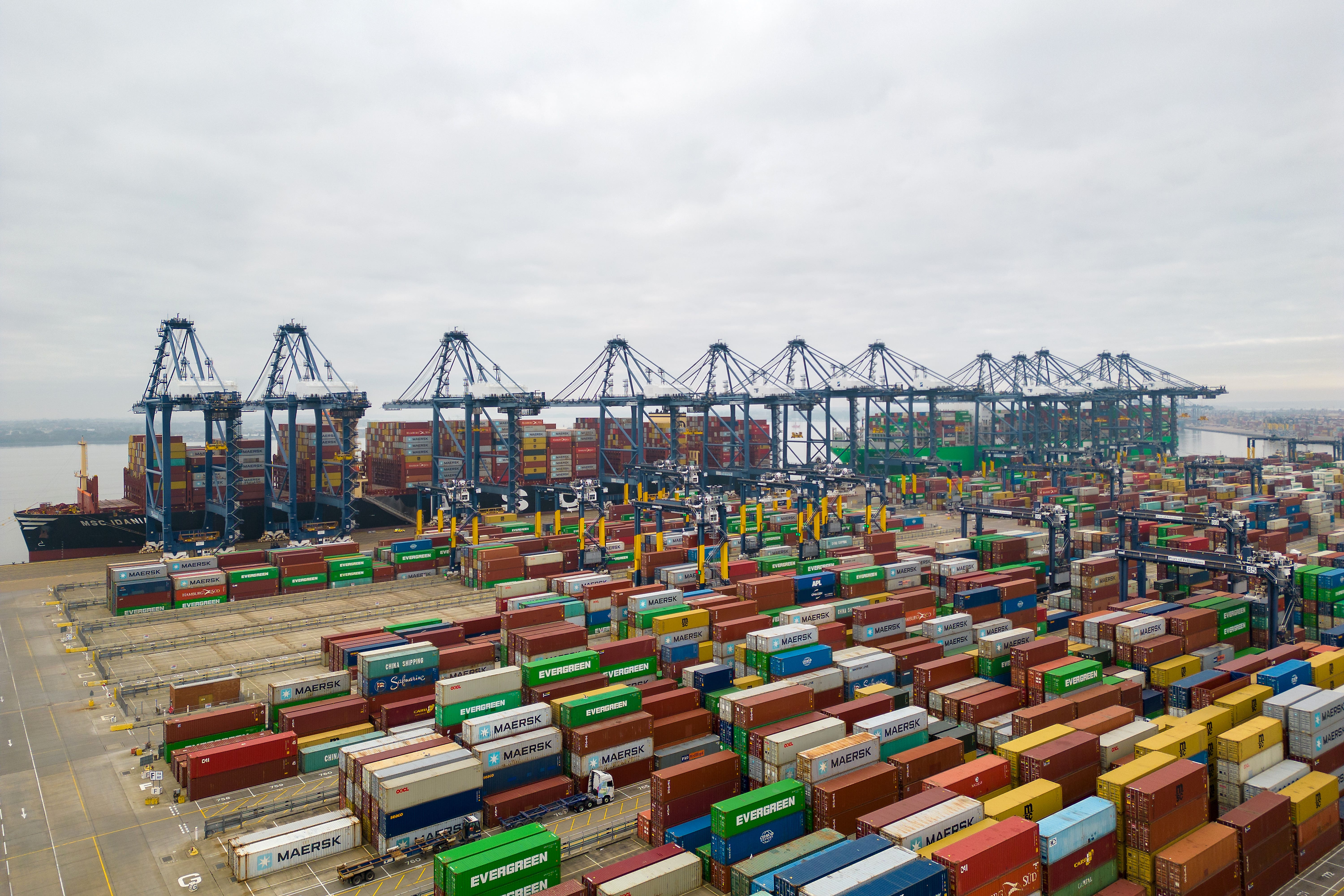Trump tariffs could hit UK goods trade as hard as Brexit, says think tank
The Resolution Foundation urged the Government to pursue an EU-focused trade policy, despite the threat of tariffs from the US.

Your support helps us to tell the story
From reproductive rights to climate change to Big Tech, The Independent is on the ground when the story is developing. Whether it's investigating the financials of Elon Musk's pro-Trump PAC or producing our latest documentary, 'The A Word', which shines a light on the American women fighting for reproductive rights, we know how important it is to parse out the facts from the messaging.
At such a critical moment in US history, we need reporters on the ground. Your donation allows us to keep sending journalists to speak to both sides of the story.
The Independent is trusted by Americans across the entire political spectrum. And unlike many other quality news outlets, we choose not to lock Americans out of our reporting and analysis with paywalls. We believe quality journalism should be available to everyone, paid for by those who can afford it.
Your support makes all the difference.Donald Trump’s threatened tariffs could hit UK trade with the US as badly as Brexit affected trade with the EU, a leading think tank has said.
In a report published on Wednesday, the Resolution Foundation said British trade since Brexit had been “a tale of two sectors”, with service exports growing strongly but goods exports stagnating.
But authors Emily Fry and Sophie Hale warned that British firms faced another major trade shock if the incoming US president implemented his threat to impose tariffs on all imports.
The Government should respond by doing what it can to avoid taking sides on tariffs, easing cross-Channel trade for goods, and taking a truly global approach to reducing barriers to the flow of services trade in and out of Britain
Ms Fry said: “Brexit has driven a trade divide between Britain’s struggling goods sectors and its powerhouse services industries.
“Firms working in areas like advertising, IT and consultancies have found it easier to work around Brexit than goods exporters who can’t avoid transport costs and border checks.
“And with the dust still settling on how Brexit has changed how firms trade, the threat of universal tariffs on goods by President-elect Trump risks widening this trade divide further.”
The report found that physical trade barriers such as the customs border had meant goods exports have grown by only 0.3% per year since 2019, well below the Organisation for Economic Co-operation and Development (OECD) average of 4.2%.
But services, which are less affected by physical barriers, have grown by 7.5%, above the OECD average of 6.1%.
Mr Trump has vowed to introduce a range of tariffs during his second term in the White House, including a 10-20% levy on all goods imports, with higher tariffs on goods from China, Mexico, Canada and nations that retaliate with protective measures of their own.
The Resolution Foundation suggested the impact on British businesses exporting to the US of a 10-20% general tariff would be “roughly equivalent in scale to the non-tariff barriers that Brexit imposed on goods sales to the EU” and would further widen the divide between goods and services.
But despite the threat of tariffs from the US, the think tank urged the Government to focus on easing trade with the EU given 47% of UK goods exports are sold in the bloc, while also pursuing greater services trade with countries beyond Europe.
Ms Fry added: “The Government should respond by doing what it can to avoid taking sides on tariffs, easing cross-Channel trade for goods, and taking a truly global approach to reducing barriers to the flow of services trade in and out of Britain.”
Tom Brufatto, director of policy and research at campaign group Best for Britain, said: “Maintaining close relations with the US remains vital to our national interest, but to ease the cost-of-living crisis the Government should continue to prioritise improving trade with our European neighbours.
“The Government’s relationship reset with the EU is off to a promising start and they shouldn’t lose sight of the prize at a time when we desperately need to break down barriers to trade.”